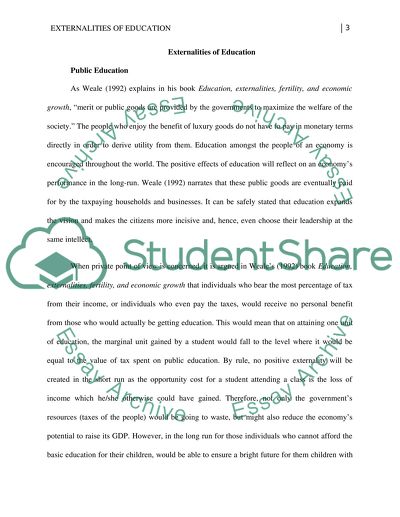Externalities of Education Essay Example | Topics and Well Written Essays - 500 words. Retrieved from https://studentshare.org/education/1447290-externalities-of-education
Externalities of Education Essay Example | Topics and Well Written Essays - 500 Words. https://studentshare.org/education/1447290-externalities-of-education.


